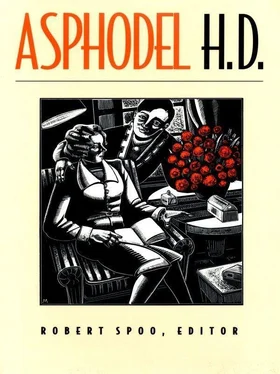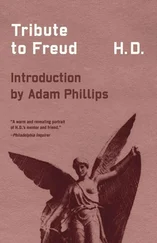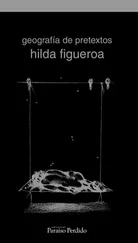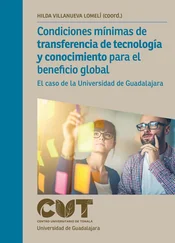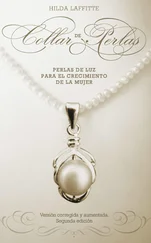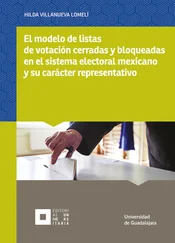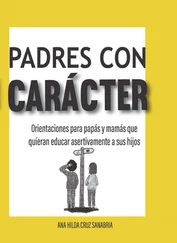“Well, why don’t you want to go to Versailles?” “I don’t. I mean I do want to sometime. Why must we go so soon? Why must we go at all. . O all right.” Versailles. O well if we have to but can’t we stay in the garden. Some days, certain days a week, once a month or something the fountains play. You have to come when the fountains are playing. It’s no good ordinary times. But then its full of people. Fountains. Long corridors. Horrible to think that Marie Antoinette ran actually down this long hallway, screaming perhaps. Why did we come? Marie Antoinette in powdered wig with slippers too high and her stays too tight and odd little embroidered underclothes. O, it was horrible. But those poor children starving and great Signors cutting off their serf’s nose. O horrible. How can things be so disjointed for why shouldn’t Marie Antoinette have roses embroidered and love knots on her petticoats and stays made in Italy and tiny, tiny high heeled little slippers, rows of them. Did she pick them up and love them and play with them as if they were dolls? I think I should have done that if I had had all the shoes of Marie Antoinette to play with. Sydney Carton. Paris. London. They are always in my heart wedded, two names, how funny I had forgotten all about Dickens. Cherry trees dropping leaves and a last scene and the girl (what was her rather washed out name?) taking the coach back to London. Not that I loved Caesar less — but that was the reverse of it — not that I loved London (or Paris) less but that I loved (what was her somewhat insipid name?) Dora (no not Dora it was some one else) more. Sydney Carton so elegant and standing on the platform, all the elegance that a school girl will dream of forever. Sydney Carton. “The view is lovely from this window.” Long corridors outside as well as in. The garden outside was corridors and steps and squares of water set in like squares of polished wood. The water outside and the hedges made walls and floors. It was not a garden really. They were caught here (poor people) in their own labyrinth. Going on and on from day to day, caught, not knowing they were caught. We’re all, all caught, but only here and there one of us (me) knows that we are caught. Light above their heads, death below their feet, still dancing, going on dancing with flutes and a Venetian cello or a new Milanese flute to give rapture to the occasion. The Grand Soleil. “No. Don’t let’s go any further. Well if we must see the little Trianon.” All the same only tiny. All the same, a doll-house replica of the big palace and huts covered à l’anglaise to play at milk maids. “Why did we come here? I think it’s the saddest place I’ve ever been to.” O sad, sad, sad. O pinks in tumblers faded and thrown on the dust heap of Republicanism. American Revolution hastening the downfall of French autocracy. Those very minute men who fired the first gun in Boston helping to nose out little rabbit white Marie Antoinette in her rose-heeled slippers. Sad thing democracy. Benjamin Franklin and America from the European angle is not unimportant. England sneering. France and America. The Marquis de Lafayette staying at the old house the Farrands’ grandmother used to have. He stayed there I mean. All the garden of the old house (it was called the Grange) laid out in boxes, squares and rows. We had heliotrope roots and cuttings from their garden, from the Grange that was named the Grange after the estate of the Marquis de Lafayette. So I was always near, near France. Heliotrope (though they didn’t thrive, they’re delicate) made me one with this. With this. O with this. Marie Antoinette running down a corridor and the heel of her slipper bent under her and she fell forward and caught her underlip. She couldn’t find the handkerchief to dab at the dash of blood on her lip. Blood and foam and all the heart of a Great Sun gone down like an ocean liner in a minute. Sydney Carton. “Do you like heliotrope?” “What for?” “The flower. I mean do you like it. It smells of eternity, the sudden foam of something breaking across — across — elegance from another world. The face powder of Du Barry.” “ Who ?” “Someone or other’s rather vulgar mistress. I mean don’t you think of things, people like that. Words darting in and out and every word related so that everything you saw and every word you say relates, weaves on to another.” “What are you stumbling at?” “I mean when I said — (thought) heiotrope I thought Du Barry. Though I don’t know why. I was really thinking of Marie Antoinette. But Marie Antoinette is a faded stalk of carnation flung in the dust bin of Republicanism. Liberty enlightening the world. That’s us. America.”
The world’s good word, the institute— that’s the Institut de France. The Institute. Carl and Bertrand Gart getting books, pamphlets from the Institute, French Binomial Theorems. Mathematics is a language common to all people — dots and dashes — why don’t we all speak a common language of dots and dashes and colours? Why must we be divided, hating each other, never understanding? There ought to be a sort of Spiritual Esperanto, all understanding each other but then how tiresome because French things are French. French things are more French obviously than anything American could ever be American. What is American? That’s just it. Asking us to be something that has never yet been defined. I am a Frenchman. O yes then go die for it, for that visible, embodied thing you call la patrie. La patrie is visible. It has made those peonies on that cart shine with that luminous rose in alabaster light. France. France has made those peonies different from any other and our flowers at home were always Dutch tulips, English roses, O la France rose had to have a name, a tag to get really across to us, to make us really love it. The Seine. This is the Seine. Fancy calling the little built up island the He de France. Of France. Of all of France. The island of France. Islands. The island in the river where we had picnics, called Calypso’s island and I asked my dear old Bert who Calypso was and he said a goddess out of a Greek poem. That was the first time I had ever heard of a goddess. “Who was she? What is one?” “What is what, Bird?” (They call me Bird.) “Why that, what you said, something about less God.” “O ho, ho.” Bert didn’t laugh like that but how do you think of people when they laugh? It’s a sort of cringing, a sort of crinkling, a sort of twisting. It’s letting go. Bert let go, leaned against the rail of the bridge. (We were on our way up what we called, the mountains, for what we called, pansy violets.) O ho, ho. That is no sound for laughter. But how write laughter? Bertrand laughed. He was always immensely thin, immensely tall. Laughing. “How kind of your big brother to take you, such a little girl up the mountains.” “Yes to get pansy violets.” Bert laughing. “A goddess as a — god — less, a God — less. Less what, Birdlet?” “It was you who said it, not me. I didn’t say anything about any less.” “You did, oracle. You said a goddess—” And he was at it again. Twisting a long leg round another long leg. What was he about then. But here we are, not there. Here we are standing on a bridge over the Seine, the galleries of the Louvre to the left ladies and gentlemen and the famous Notre Dame across a little in the distance. Here we are in France. How ever did we get here? What is France? What is French? A sort of (obviously) Esperanto of the Spirit.
“But who is he?” “I tell you he is Walter Dowel. I can’t tell you any more. He’s very famous—” “I should judge so by his trousers.” “I can’t see that there was anything wrong with Walter’s trousers.” “Nothing wrong only they made us, the post-cards, the woman behind the bench selling post cards, the Cook’s guide, the elegant late plaster cast Roman lady with the fat arms, even you, even you , purse proud, look wrong.” “How wrong, Fayne Rabb?” “I don’t know how wrong. I could tell you in a million years. I didn’t know your friends, your formulas for life. But even you, I should have thought could have stood upright looking like some Cyrenian hysteria beside anybody. But you didn’t. You looked dowdy and odd and fancy your thinking you could carry your mangy wilted peonies along with you through the Louvre galleries and fancy you not having French enough to get the woman’s meaning—” “I knew her meaning. She only wanted a tip.” “Then fancy you Miss Suavity, not having savoir faire (I think you call it) enough to get out your pennies and having to be interpreted—” “I didn’t have to have it interpreted—” “Well, mama and I saw you at it and we thought it was a stranger—” “Well he is a stranger.” “You don’t talk to strangers—” “I mean I only heard him play a few times—” “Play? Play what? Ye gods I thought he was head floor walker in some smart shop.” “No. He’s I told you famous. He’s the famous Walter Dowel—” “ The famous Walter Dowel.” “His grandfather invented the morse code. Telepathatic. I mean telegraphic or something. It’s taken Walter in music —” “ Music ? That’s what he does?” “Didn’t I tell you? I’ve been saying it all along. The famous Walter Dowel. Debussy’s favourite pupil.”
Читать дальше
